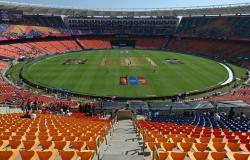Long-term high inflation is ‘diabetes’ for the country’s economy: Ex-NBR chairman Mazid
Economists have underlined the need for reforms in four key areas of the country’s economy: the revenue sector, exchange rate management, banking industry, and public spending management.
“The country’s economic progress is facing various adversities and crises. This is the right time for the new government to initiate budget reforms,” said MA Razzaque, chairman of Research and Policy Integration for Development (RAPID), during a consultative meeting at the National Press Club in the capital on Tuesday.
RAPID Executive Director Professor Abu Eusuf presented the keynote on the occasion, titled “Budget for 2024-25: Key Challenges and the Way Forward,” organized by the think tank.
MA Razzaque said, “The impact of inflation is very severe. Two years of high inflation have dented much of this success.”
“Its impact is greatest on the poor,” he said, pointing out, “If inflation is not controlled, this disparity will become more severe.”
State Minister for Planning Shahiduzzaman Sarker spoke at the program as chief guest, while economists and experts presented their views on the occasion.
Muhammad Abdul Mazid, former chairman of the National Board of Revenue, described long-term high inflation as “diabetes” for the economy.
He stated, “Inflation has persisted for an extended period. Essentially, the economy of Bangladesh is now afflicted with diabetes. If this trend continues, there is a risk of hypoglycaemia at some point.”
Other speakers also stressed the importance of controlling long-term high inflation in the country.
Lawmaker Md Nasser Shahrear zahedee said, “In the next budget, everything must be done to control the price of goods.”
Expressing his dissatisfaction with the very small allocation for research in Bangladesh, he said, “A department of Rajshahi University has received less allocation for research than the allocation given for the car fuel of a deputy secretary of the government.”
Shawkat Hossain Masum, head of online operations at the daily Prothom Alo, said inflation has been above 9% for two years. Almost all countries have implemented political interest rate strategies to reduce inflation. “But Bangladesh did not follow suit. We have also seen the results of this,” he added.
He continued, “Since there has been no alternative to the policy rate yet in controlling inflation, Bangladesh has finally had to go that way.”
In suggesting reforms to control inflation, he mentioned, “Reforms cannot please everyone, but they are necessary.”
Referring to the budget and various government plans, the state minister for planning said, “The size of the next budget will be Tk8 lakh crore. We have begun preparing the ninth five-year plan.”
Regarding the increase in interest rates as part of the process to reduce inflation, he said, “We are not a free economy in the true sense; we follow a welfare economy model.”
He further mentioned, “The upcoming budget will reflect the election manifesto of the ruling Awami League.”
Tags: Economists stress urgent reforms revenue exchange rate banking spending
-





